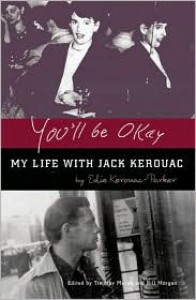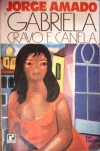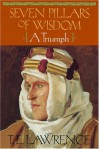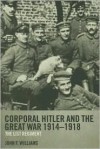Currently reading
LIFE AMONG THE EARLY MEMBERS OF THE 'BEAT GENERATION' IN 1940s NEW YORK

You'll Be Okay: My Life with Jack Kerouac is, for anyone with an interest in Jack Kerouac and the leading members of the Beat Generation group of writers and artists, a fascinating story of how they lived in wartime New York City during the early 1940s. Edie herself was married to Kerouac between 1944 and 1948.
I confess to knowing little about Jack Kerouac and not having read any of his books. But a couple of years ago, I went to see the movie 'Kill Your Darlings' which was centered on the college days of the earliest members of the Beat Generation: Kerouac, Allen Ginsberg, William Burroughs, and Lucien Carr, whose murder of David Kammerer in August 1944 - an old acquaintance from St. Louis who had an overweening attraction to Carr and stalked him - is at the heart of that movie. I enjoyed the movie, which reminded me of "You'll Be Okay", which I had purchased at BORDERS a few years earlier, but had yet to read. Now having read it, I enjoyed Edie Parker's reminiscences on an era (the 1940s) that fascinates me to no end. She made the New York of that time as she experienced it so tangibly real to me. Most of her friends were then in their early 20s and they wanted to LIVE and experienced to the full all that life afforded them. And as most of them (with the exception of Kerouac who had entered Colombia University on a football scholarship in 1940) came from affluent backgrounds, they were free --- wartime rationing and privations notwithstanding --- to live and work in New York, then as now one of the most colorful and exciting cities on Earth.
Thus, for its nostalgic value, I give You'll Be Okay: My Life with Jack Kerouac FIVE STARS.
 2
2













